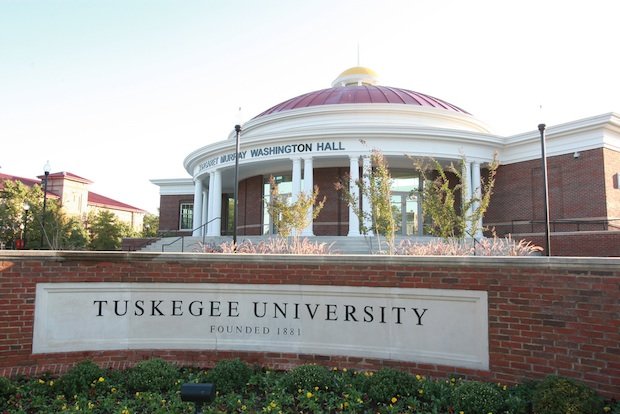Special to the
Opelika Observer
On Dec. 11, the Southern Association of Colleges and Schools Commission on Colleges publicly reaffirmed Tuskegee University’s accreditation status for an additional 10 years. The announcement is the successful outcome of a process that began three years ago, and comes as part of the accrediting organization’s annual meeting held this week in New Orleans, Louisiana.
“This is outstanding news and a testament to the commitment and teamwork demonstrated by Tuskegee University’s collective campus community,” said President Lily D. McNair. “Maintaining accreditation validates for our students, alumni and partners that Tuskegee is committed to providing high-quality academic programs, and to adhering to strict institutional standards related to integrity, effective governance, financial sustainability and appropriate student support services.”
SACSCOC has more than 90 standards in its Principles of Accreditation with which institutions must comply in order to gain or maintain accreditation. In September 2017, Tuskegee officials submitted a compliance certification report following an extensive self-study of all aspects of university operations. And, in March 2018, an on-site reaffirmation team visited campus, during which time SACSCOC reviewers met with students, faculty, staff, administrators, alumni, and community and academic partners to evaluate the university’s effectiveness and the outcomes of its own self-study.
As part of the reaffirmation process, Tuskegee developed a Quality Enhancement Plan, or QEP — a comprehensive plan for institutional improvement. Its QEP, “Road from Early Achievement to a Career High,” or “REACH,” which will span efforts during the next five years, is a university-wide focus on centralizing current programs and activities, and developing new ones, to better prepare students to be equipped, competitive and successful as they strive to achieve their educational and career goals.
McNair noted that continuous improvement efforts like the reaffirmation of accreditation process help the university achieve excellence in every way — a theme of the first year of her presidency.
“The reaffirmation of accreditation process, in and of itself, helps institutions ensure excellence in their academics and how they prepare students for the real-world challenges they will face through their chosen professions,” she said. “Our continuing accreditation provides a firm springboard for our ongoing efforts in this area as we further deploy our REACH QEP initiative and other academic strategies in the months and years to come.”
While McNair noted the combined contributions of many who made reaffirmation of accreditation possible, she highlighted several university leaders for their specific leadership. These included Dr. Charlotte P. Morris, who maintained a central role in the process — especially during her tenure as interim president and at the height of the reaffirmation effort. She also cited Dr. Kellei Bishop Samuels, associate vice president for institutional effectiveness and the university’s SACSCOC liaison, as well as Dr. Roberta Troy, who chairs the QEP Steering Committee in addition to her role as interim provost, for their command of the reporting, documentation and oversight required of this multi-year effort.
Tuskegee University, whose previous 10-year accreditation reaffirmation dates back to 2008, has been continuously accredited by SACSCOC since 1933. In addition to ensuring that Tuskegee’s students are experiencing high-quality academic programs, successful reaffirmation of accreditation determines the university’s eligibility to receive federal and state funding, including student financial aid, and its ability to transfer academic credits with other institutions.
As the major accrediting body for public and private institutions of higher education in the 11 southernmost states, SACSCOC accredits more than 780 universities and colleges in North Carolina, Alabama, Florida, Georgia, Kentucky, Louisiana, Mississippi, South Carolina, Tennessee, Texas and Virginia and in Latin America.
For more information, visit www.sacscoc.org.

